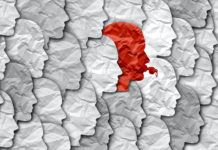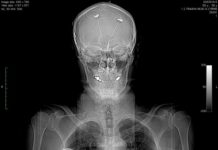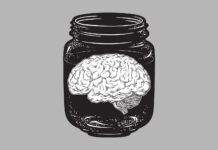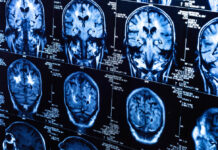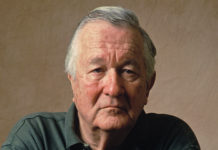“Confidential” 988 Conversation Records Shared with Corporations
Recordings of 988 callers’ voice, text, and chat conversations are being shared with researchers, AI developers, and corporations without consent.
Teen Arts Exhibition: Beyond Labels And Meds: What It Feels Like To Be Me
28 teen artists share the power of their creativity in this collection of profoundly moving, courageous, and beautiful artwork.
The Dying of the Light: Norway’s “Medication-Free” Services for Psychotic Patients Are Fading Away
Despite their successful outcomes, Norwegian non-coercive and medication-free programs are being threatened with closure.
Roll-out of 988 Threatens Anonymity of Crisis Hotlines
Even after their own advisory committee criticized call tracing, leaders of the National Suicide Prevention Lifeline have been lobbying government for cutting-edge mass surveillance and tracking technology. Privacy experts are raising concerns.
An FDA Whistleblower’s Documents: Commerce, Corruption, and Death
In 2008, a reviewer of psychiatric drugs at the FDA, Ron Kavanagh, complained to Congress that the FDA was approving a new antipsychotic that was ineffective and yet had adverse effects that increased the risk of death. Twelve years later, a review of the whistleblower documents reveal an FDA approval process that can lead to the marketing of drugs sure to harm public health.
The New York Times Is Now Engulfed in the STAR*D Scandal
The New York Times published yet again the fraudulent result from the STAR*D trial. Will the mainstream media ever tell of this scandal?
Adverse Effects: The Perils of Deep Brain Stimulation for Depression
Hundreds of people have been given remote control deep brain stimulation implants for psychiatric disorders such as depression, OCD and Tourette’s. Yet DBS specialists still have no clue about its mechanisms of action and research suggests its hefty health and safety risks far outweigh benefits.
Soteria Israel: A Vision from the Past is a Blueprint for the Future
In Israel, there is a budding Soteria movement that foretells of a possible paradigm shift in care. The thought is that such care may become a first-line treatment for newly psychotic patients.
Screening + Drug Treatment = Increase in Veteran Suicides
For the past 15 years, the VA's suicide prevention efforts have focused on getting veterans screened and treated for psychiatric disorders, with antidepressants a first-line therapy. This effort has caused veteran suicide rates to steadily rise.
Winding Back the Clock: What If the STAR*D Investigators Had Told the Truth?
The STAR*D Study has been cited as real-world evidence of the efficacy of antidepressants. In truth, it told of a failed paradigm of care.
Busting the Deinstitutionalization Myth: We Actually Have More Beds Than Ever Before
New data upends common beliefs about asylum closures, deinstitutionalization, and rates of psychiatric coercion.
Music Aids Mental Health: Science Shows Why
What can science tell us about music’s impact on our cognition and on our mood, on our capacity for empathy, and our sense of connection with others? How does it change the brain? How does it change us?
Brain Implants: Spinning the Trial Results to Protect the Product
The published report of the Broaden Trial of Deep Brain Stimulation for Depression whitewashed the results: although the efficacy results were negative, the investigators concluded that the therapy still showed "promise", and adverse events suffered by the patients were downplayed or attributed to the disease, and not the treatment. An in-depth investigation of how the trial results were spun, and interviews with patients that tell of harm done.
Maryland Enacts a “Draconian” Assisted Outpatient Treatment Program
Advocates vow to keep resisting psychiatric force, fighting for rights-based supports
Causality in Mental Disturbance: A Review of the Neuroscience
Psychiatry's medicalization of social and psychological suffering is not justified by the currently known biology.
A Neuroscientist Evaluates the Standard Biological Model of Depression
Current evidence does not support a biological hypothesis of depression. It is far better predicted by levels of childhood trauma, life stress, and lack of social supports.
MindFreedom’s Shield Program: Working to Free People from Psychiatric Incarceration and Forced Treatment
“We need the MindFreedom Shield to have someone in our corner when we are told that it doesn't matter what we want, that someone else can make a choice about our bodies that we will have to live with for the rest of our lives.”
Art, Music, Exercise, and More: What Are the Recommended Doses for Improving Mental Health?
Researchers have calculated the dose-response benefits of ordinary hobbies, habits, and lifestyle practices that are available without any trip to a doctor or a drug store.
The Rise of the Digital Asylum
The digital pill Abilify MyCite, which is now being introduced into the market, foretells of a future where such technology is used to monitor the behavior, location and "medication compliance" of a person 24 hours a day.
William Styron: His Struggles with Psychiatry and Its Pills
Author William Styron is often remembered for speaking about depression as an illness. But a review of his life reveals that psychiatric drugs may have triggered and even worsened his depressive episodes.
The Latest “Breakthrough Therapy”: Expensive New Drugs for Tardive Dyskinesia
The increased prescribing of antipsychotics, which frequently cause a brain injury that manifests as tardive dyskinesia, has provided pharmaceutical companies with a lucrative new market opportunity.
Andrew Rich: “I Didn’t Know Stuff Like This Existed”
In this second part of MIA’s report on compulsory outpatient treatment orders, Michael Simonson tells of how he came to report on this topic, the results from MIA’s survey of people who have experienced such forced treatment, his interviews with several of the survey respondents, and more on Andrew Rich’s life.
Crisis on Campus: Mental Health Counselors Are Feeling the Crush
A dramatic rise in demand for college mental health services has led to counselors feeling burned out. Counseling center directors are looking for solutions.
Campaign Against ECT Gains Traction in UK
"Across the pond," campaigners’ efforts against electroshock are gaining public notice. Can their approach work in the US?
“Holy Shit!” Psychiatry’s Cognitive Dissonance on Display
Even those who would seek to reform the profession of psychiatry cannot confront the reality that exists in the research literature





